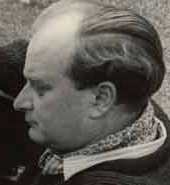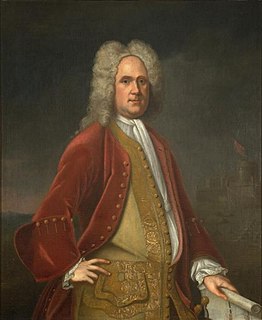 W
WLieutenant General Michael George Henry Barker was a British Army officer who fought in both world wars, notably as commander of I Corps during the Battle of France in May 1940.
 W
WJohn Granville, 1st Earl of Bath PC, 29 August 1628 – 22 August 1701, was an English landowner from Cornwall who served in the Royalist army during the First English Civil War and was rewarded for his services after the 1660 Stuart Restoration with a title and various appointments.
 W
WAndrew Cathcart Bogle VC was a Scottish recipient of the Victoria Cross, the highest and most prestigious award for gallantry in the face of the enemy that can be awarded to British and Commonwealth forces.
 W
WLieutenant Colonel Joseph Petrus Hendrik Crowe VC was the second South African-born recipient of the Victoria Cross, the highest and most prestigious award for gallantry in the face of the enemy that can be awarded to British and Commonwealth forces.
 W
WThere have been two baronetcies created for members of the Dashwood family, one in the Baronetage of England and one in the Baronetage of Great Britain. Both creations are extant as of 2008.
 W
WThe Honourable Raymond Harvey Lodge Joseph de Montmorency VC was a British recipient of the Victoria Cross (VC), the highest and most prestigious award for gallantry in the face of the enemy that can be awarded to British and Commonwealth forces..
 W
WMajor General Winston Joseph Dugan, 1st Baron Dugan of Victoria,, known as Sir Winston Dugan between 1934 and 1949, was a British administrator and a career British Army officer. He served as Governor of South Australia from 1934 to 1939, then Governor of Victoria until 1949.
 W
WPrince William Augustus Edward of Saxe-Weimar-Eisenach,, PC(Ire) was a British military officer of German parents. After a career in the Grenadier Guards, he became Major General commanding the Brigade of Guards and General Officer Commanding the Home District in 1870, General Officer Commanding Southern District in October 1878 and Commander-in-Chief, Ireland in October 1885. He was promoted to field marshal in 1897 despite his career including no great military achievements.
 W
WHenry Howard, 2nd Earl of Effingham, DL, styled Lord Howard from 1837 to 1845, was a British peer and Member of Parliament.
 W
WMajor General Roger Elliott was one of the earliest British Governors of Gibraltar. A member of the Eliot family, his son Granville Elliott became the first Count Elliott and his nephew George Augustus Eliott also became a noted Governor and defender of Gibraltar.
 W
WGeneral Henry Edward Fox was a British Army general who served brief spells as Governor of Minorca and Governor of Gibraltar.
 W
WSir Bevil Granville was an English soldier who served as Governor of Pendennis Castle in Cornwall and as Governor of Barbados.
 W
WFrank Kingsley Griffith was a British Liberal Party politician, barrister and County Court judge.
 W
WBrigadier Percy Howard Hansen, was a British Army officer and recipient of the Victoria Cross, the highest award for gallantry in the face of the enemy that can be awarded to personnel of the British and Commonwealth forces.
 W
WLieutenant General Sir Henry Marshman Havelock-Allan, 1st Baronet was a British soldier and politician. 'Allan' in the surname was added in March 1880.
 W
WMajor Charles Ferguson Hoey VC MC was a Canadian recipient of the Victoria Cross, the highest and most prestigious award for gallantry in the face of the enemy that can be awarded to British and Commonwealth forces.
 W
WLieutenant-General Sir Robert Murray Keith KCB PC FRSE was a British soldier, diplomat and politician who sat in the House of Commons from 1775 to 1780.
 W
WGeneral Sir John Lambert was a British Army officer who served in the French Revolutionary Wars, the Napoleonic Wars and the War of 1812. He is best known for his consummate actions whilst commanding the tenth brigade during the Battle of Waterloo, which kept open the vital line of communication between Hougoumont farmhouse and the rest of the Allied army.
 W
WLieutenant General Sir John Gaspard Le Marchant (1803–1874) was a British Army officer and governor of Newfoundland from 1847 to 1852. He later became the Lieutenant Governor of Nova Scotia (1852–1858) and Governor of Malta (1858-1864).
 W
WJames Leasor was a prolific British author, who wrote historical books and thrillers. A number of Leasor's works were made into films, including his 1978 book, Boarding Party, about an incident from the Second World War that until that time was secret, which was turned into The Sea Wolves (1980) starring Gregory Peck, Roger Moore and David Niven.
 W
WGeneral Sir Henry Errington Longden was a British Army officer who served as Adjutant-General in India.
 W
WLieutenant General The Right Honourable Sir Thomas Maitland was a British soldier and colonial governor. He also served as a Member of Parliament for Haddington from 1790 to 1796, 1802–06 and 1812–13. He was made a Privy Councillor on 23 November 1803. He was the second surviving son of James Maitland, 7th Earl of Lauderdale, and the younger brother of James Maitland, 8th Earl of Lauderdale. Maitland never married.
 W
WBrigadier John Sebastian Nichols, was a British Army officer who fought during both the First World War and the Second World War. During the latter his most notable role was when he commanded the 50th (Northumbrian) Infantry Division during the Second Battle of El Alamein and in the Tunisian Campaign from 1942 to 1943.
 W
WSir Robert Pigot, 2nd Baronet was a British Army officer during the American Revolutionary War.
 W
WJohn Gerald Christopher Ryan was a Scottish animator and cartoonist. He was best known for his character Captain Pugwash.
 W
WLieutenant Colonel Brian Duncan Shaw, was a British chemistry lecturer at the University of Nottingham, widely known for his demonstrations on explosives.
 W
WSir Berkeley Digby George Sheffield, 6th Baronet, DL was a British Member of Parliament for the Conservative Party.
 W
WCharles de Laet Waldo Sibthorp, popularly known as Colonel Sibthorp, was a widely caricatured British Ultra-Tory politician in the early 19th century. He sat as a Member of Parliament for Lincoln from 1826 to 1832 and from 1835 until 1855.
 W
WMajor General Francis Smith (1723–1791) was a British Army officer. Although Smith had a lengthy and varied career, he is best known as the British commander during most of the Battle of Lexington and Concord, Massachusetts on 19 April 1775. The fighting ignited the American War of Independence that would see thirteen of Britain's American Colonies become a separate nation.
 W
WAlexander Spotswood was a British Army officer, explorer and lieutenant governor of Colonial Virginia; he is regarded as one of the most significant historical figures in British North American colonial history.
 W
WField Marshal James O'Hara, 2nd Baron Tyrawley and 1st Baron Kilmaine, PC, was an Irish officer in the British Army. After serving as a junior officer in Spain and the Low Countries during the War of the Spanish Succession, he went on to become British ambassador to Lisbon establishing a close relationship with King John V there. He undertook a tour as British ambassador to Saint Petersburg before becoming Governor of Gibraltar where he set about improving the fortifications. He was briefly commander of British troops in Portugal during the Seven Years' War but was replaced within a few months. During his military career he was colonel of eight different regiments.
 W
WSir (Charles) Geoffrey Vickers, VC was an English lawyer, administrator, writer and pioneering systems scientist. He had varied interests with roles at different times with the London Passenger Transport Board, Law Society, Medical Research Council and Mental Health Research Fund. In the later years he wrote and lectured on social systems analysis and the complex patterns of social organisation. The Sir Geoffrey Vickers Memorial Award has been presented by the International Society for the Systems Sciences since 1987 in his memory.